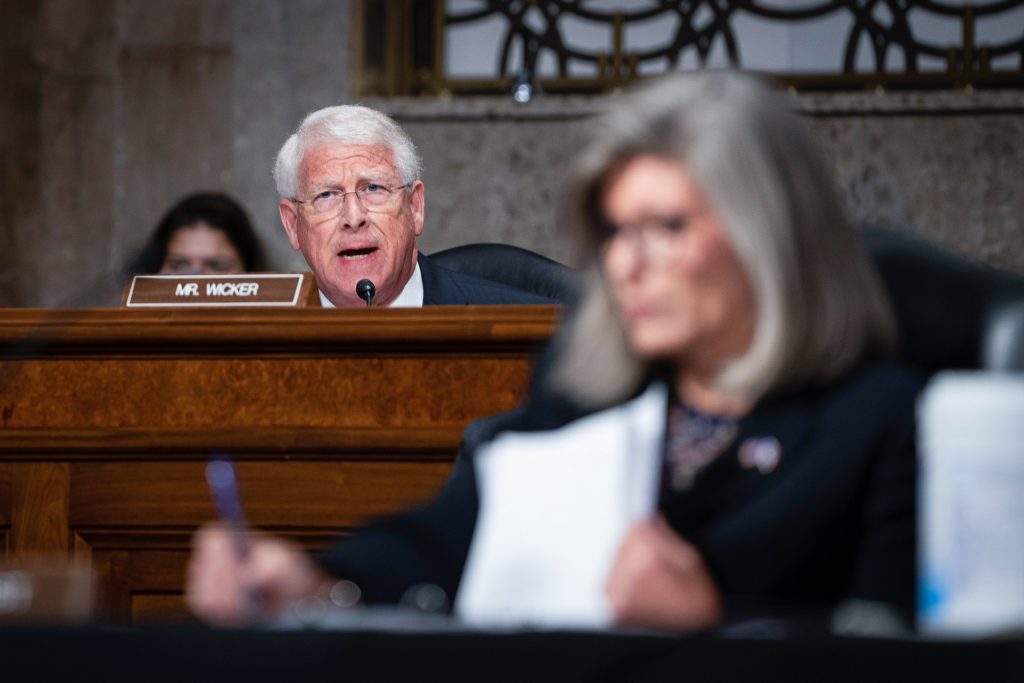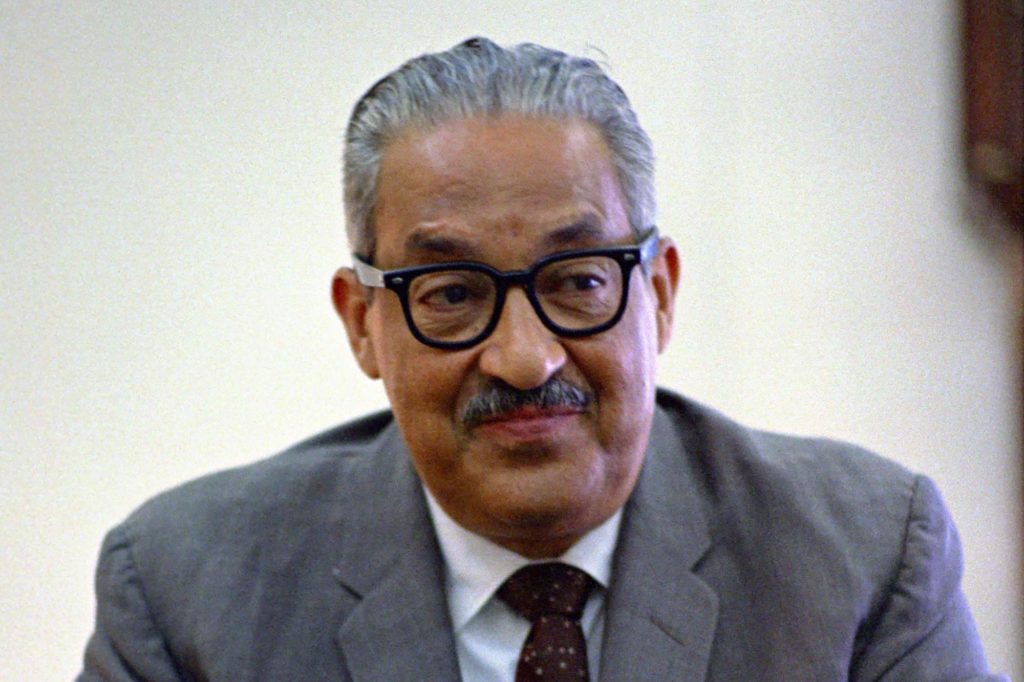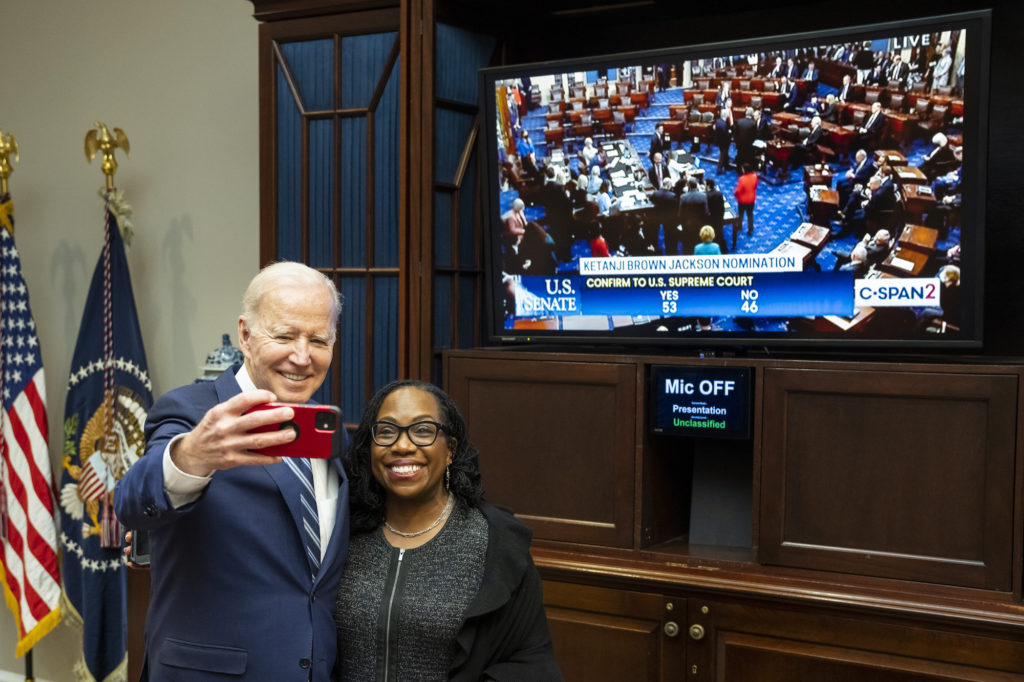The U.S. Senate voted to confirm Ketanji Brown Jackson as the first Black woman in history to serve on the U.S. Supreme Court, but both of Mississippi’s U.S. senators, Republicans Cindy Hyde-Smith and Roger Wicker, voted no.
The vote comes almost 55 years after two of the state’s former U.S. senators, Democrats James O. Eastland and John C. Stennis, voted against confirming Thurgood Marshall as the first Black man to serve on the nation’s high court. Biden, who nominated Jackson, once counted Eastland and Stennis as mentors during his early days in the U.S. Senate.
Judith Browne Dianis, the executive director of Advancement Project, a civil rights organization, noted in a statement after today’s vote that Jackson “is also the first public defender” to serve on the court.
“The highest Court in the land now will have a firsthand perspective of how the law impacts communities of color—via voting rights, police misconduct, abortion access, housing discrimination, or the criminal legal system, among other issues,” Dianis said. “This will ultimately benefit all Americans.”

As a 2020 presidential candidate, Joe Biden vowed to appoint the first Black woman to the U.S. Supreme Court—a promise he reiterated in January 2022 after Justice Stephen Breyer announced his retirement. Even before Biden announced he had chosen Jackson, though, Sen. Wicker told SuperTalk Mississippi radio host Paul Gallo in January that he did not plan to support the president’s nominee. Wicker said then that any Black woman the president chose would be a “beneficiary” of an affirmative action “quota”—earning a rebuke from the White House.
‘Activism’ Not A New Concern
After President Lyndon B. Johnson nominated Thurgood Marshall for the U.S. Supreme Court in 1967, southern senators cited his history of civil-rights advocacy as a strike against him. As a lawyer, Marshall had successfully argued Brown v. Board of Education of Topeka before the nation’s high court, leading to the downfall of public school segregation.
“Are you prejudiced against the white people of the South?” Sen. Eastland, a staunch segregationist from the Mississippi Delta, asked Marshall during his confirmation hearings.
“No, not at all,” the nominee said.

Eastland joined 11 other southern senators who voted against confirming Marshall to the U.S. Supreme Court; 69 senators voted to confirm him, while 20 did not vote. Eastland said he voted no because Marshall would “use the vast power of the court as an instrument of social policy.”
Sen. Stennis, a segregationist who would later repudiate some of those views, skipped the vote, but made clear before leaving that he opposed Marshall’s confirmation, calling Marshall an “activist” and saying he had refused “to explain his philosophy” and “flatly refused to answer simple factual questions.”
In statements this week, Mississippi’s two U.S. senators similarly offered their reasons for opposing Jackson’s confirmation. Sen. Cindy Hyde-Smith claimed that “Judge Jackson’s record indicates a readiness to legislate from the bench,” accusing her of being someone who would use the court for left-wing “activism.”
In his statement, Wicker said Jackson “did not alleviate my concerns that she has a far-left judicial philosophy” and claimed that “she has refused to answer basic questions about her record and her approach to the law.”
Conservative Majority Remains
Clarence Thomas, a conservative justice whom President George H.W. Bush appointed to replace Marshall upon his retirement, remains the only Black U.S. Supreme Court nominee who has enjoyed support from Mississippi senators.
In 1991, Republican Mississippi U.S. Sens. Thad Cochran and Trent Lott voted to approve Thomas’ nomination amid a contentious confirmation battle. He won approval in a 52-48 vote after Anita Hill testified that the nominee had sexually harassed her during her time as his employee.

Thomas’ wife, Ginni Thomas, made news recently amid revelations that she pushed the Trump White House to fight to overturn the 2020 election ahead of January 6th and at a time when the high court was considering election-related lawsuits.
Because she is replacing Breyer, a white liberal justice, Jackson’s appointment will diversify the court, but it will not change the court’s rightward tilt, which former President Donald Trump cemented when he appointed a third of its members between 2017 and 2020.
The court will maintain a 6-3 conservative majority.










